Fandom
This week someone met my chihuahuas Chai and Masala for the first time and asked which is my favorite. I refuse to play favorites because that's just poor parenting. It's different, though, when it comes to kanji. Next week I'll post essay 1492 on 扇 (fan), a kanji that stands out as particularly stimulating. There are so many surprising uses of this character that I'll blog about it both this week and next. At least I think I'll return to it next week, but who knows what next week will really bring? Let's live in the moment and do a series of quizzes.
1. Saké Is the Winner
If you are sampling saké and wine and you think the saké is better, you could say this:
日本酒に軍配が上がる。
The saké is the winner.
日本酒 (にほんしゅ: saké); 軍配 (ぐんばい: strategy); 上がる (あがる: to raise)
The word 軍配 breaks down as army + arrangement. So what's going on here? Does 軍配が上がる mean "to raise a strategy"?
I'll block the answer with a pretty fan:
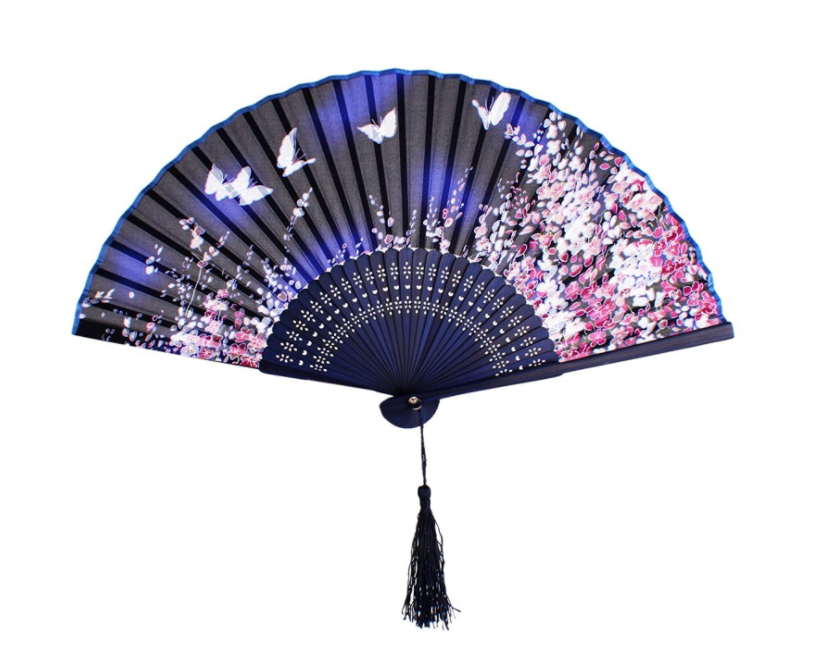
Okay, now for the answer. The word 軍配 (ぐんばい) is short for this term:
軍配団扇 (ぐんばいうちわ: (1) gourd-shaped war fan; (2) sumo referee's fan; (3) fan-shaped emblem)
strategy (1st 2 kanji) + nonfolding fan shaped like a paddle (last 2 kanji)
A gourd-shaped war fan?! That certainly sounds strange in a Western context, but an example on Amazon Japan should at least clear up the reference to the vegetable shape, if not the precise use of this fan on a battlefield.
Let's focus on the second definition. A sumo referee holds a 軍配団扇, using this fan at key moments. In a video of a sumo match, you can clearly see the fan at 1:13. Then at 2:20, the referee raises his fan toward the winner. The decisive motion with which he does this has inspired the following common expression:
Aに軍配が上がる (Aにぐんばいがあがる: the referee's fan is raised toward A, signaling that he has won the match), which is to say "to be declared the winner"
Here's the transitive version:
Aに軍配を上げる (Aにぐんばいをあげる: to raise the referee's fan toward A, signaling that he has won the match), which means "to declare someone the winner"
People use these two phrases primarily for sumo but also far beyond the sumo ring. For example, they come in handy when talking about who won any kind of contest. They're also useful for comparisons, as we saw with the two types of alcohol.
2. Heads or Tails
As we've seen in essay 1460 on 穂 (ear of grain plant; tip of pointed object), the following plant parts can be called ears of grain (穂):
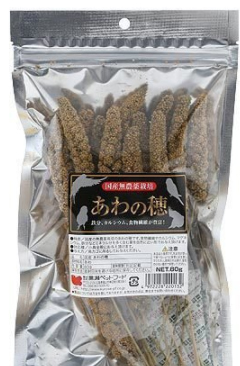
To be precise, these are ears of millet (あわ, corresponding to the non-Joyo 粟), meant to be used as bird food. An "ear of grain" can also be called the "head" of a grain-bearing plant.
The next plant is known in English as a "cattail":
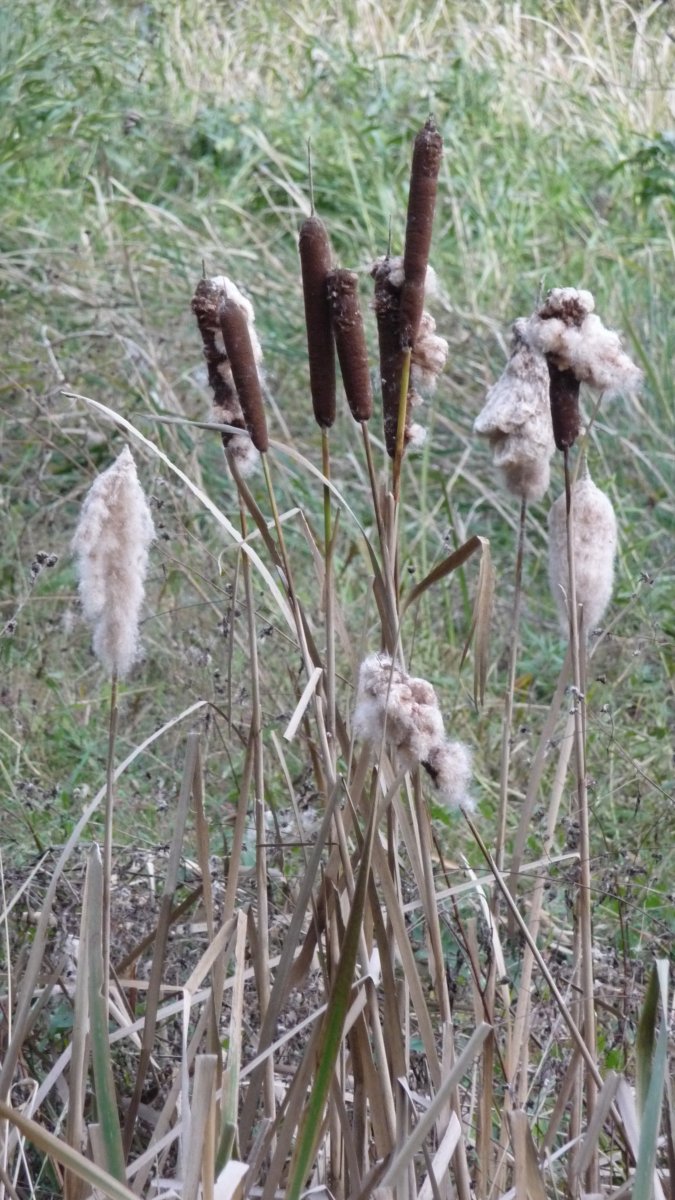
The Japanese call this plant ガマ (蒲 or 香蒲). By the way, 蒲 is non-Joyo.
Thus far, we've seen heads, ears, and tails! Here's another tail:
尾扇 (びせん: tail fan) tail + folding fan
What could this be referring to? Here are your choices:
a. the rear part of an airplane
b. a peacock's array of feathers
c. the fan-shaped tail of a shrimp
d. a whale's tail
I'll block the answer with another fan:
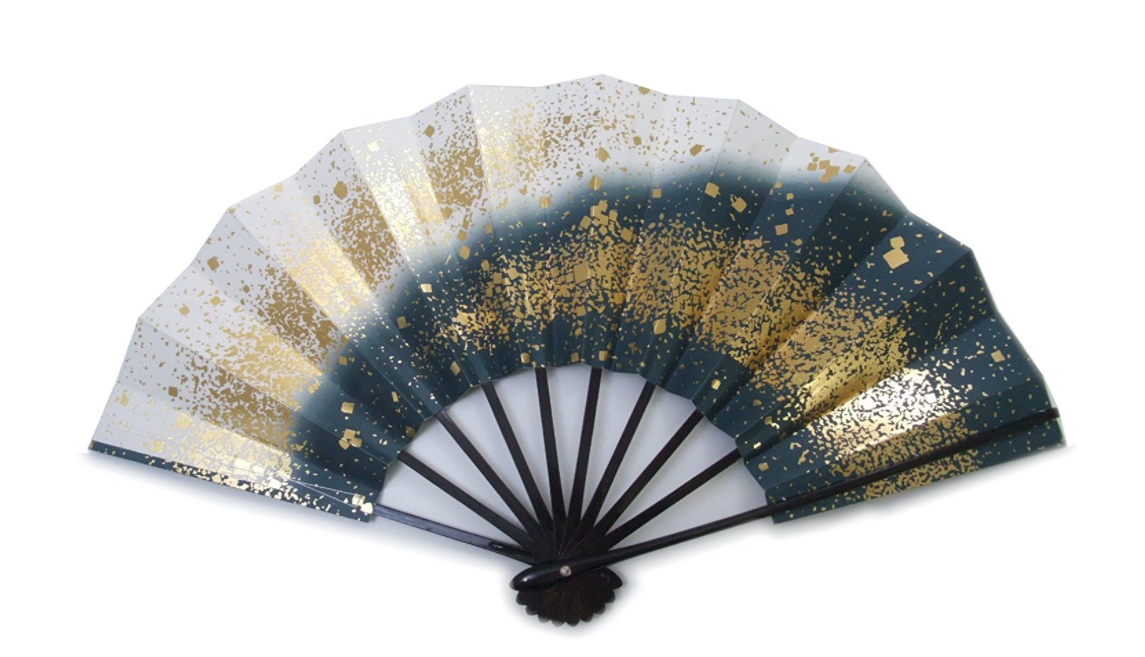
Here's the answer:
c. 尾扇 (びせん: tail fan, tail + folding fan) refers to the fan-shaped tail of a shrimp, lobster, and so on. In other words, the term likens that curving shape to that of a folding fan. What an ingenious leap! In fact, fans have inspired these terms:
扇形 (おうぎがた or せんけい: fan shape) fan + shape
扇状 (せんじょう: fan shape) fan + shape
Here are just some of the many objects the Japanese would describe as 扇形 or as 扇状:
• a deck of cards that someone has "fanned" out
• the bristles of a makeup brush or of a calligraphy brush
• a curved sushi "tray" known as a 盛台 (もりだい)
• an enormous, indescribable gossamer cloak that is part of a belly-dancing costume
3. Fan Etiquette
Let's do one more quiz. The Japanese have rules of etiquette about using fans, of course! Which of these rules is false:
a. You should fan yourself elegantly with the printed side of the fan facing others.
b. Don't unnecessarily fan others while fanning yourself.
c. Fanning yourself in front of older people may be considered bad manners.
d. You should make noise when opening a fan, just as you should when slurping noodles.
I'll block the answer with a preview of the newest essay:
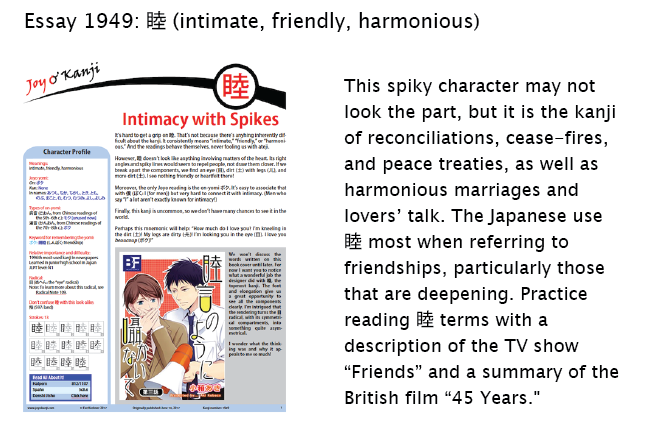
The false answer is d. You should not make noise when opening a folding fan. (Got that? No grunting! Actually, this rule refers to the slapping sound a fan can make while opening.)
Have a great weekend!
*****
Did you like this post? Express your love by supporting Joy o' Kanji on Patreon:


Comments